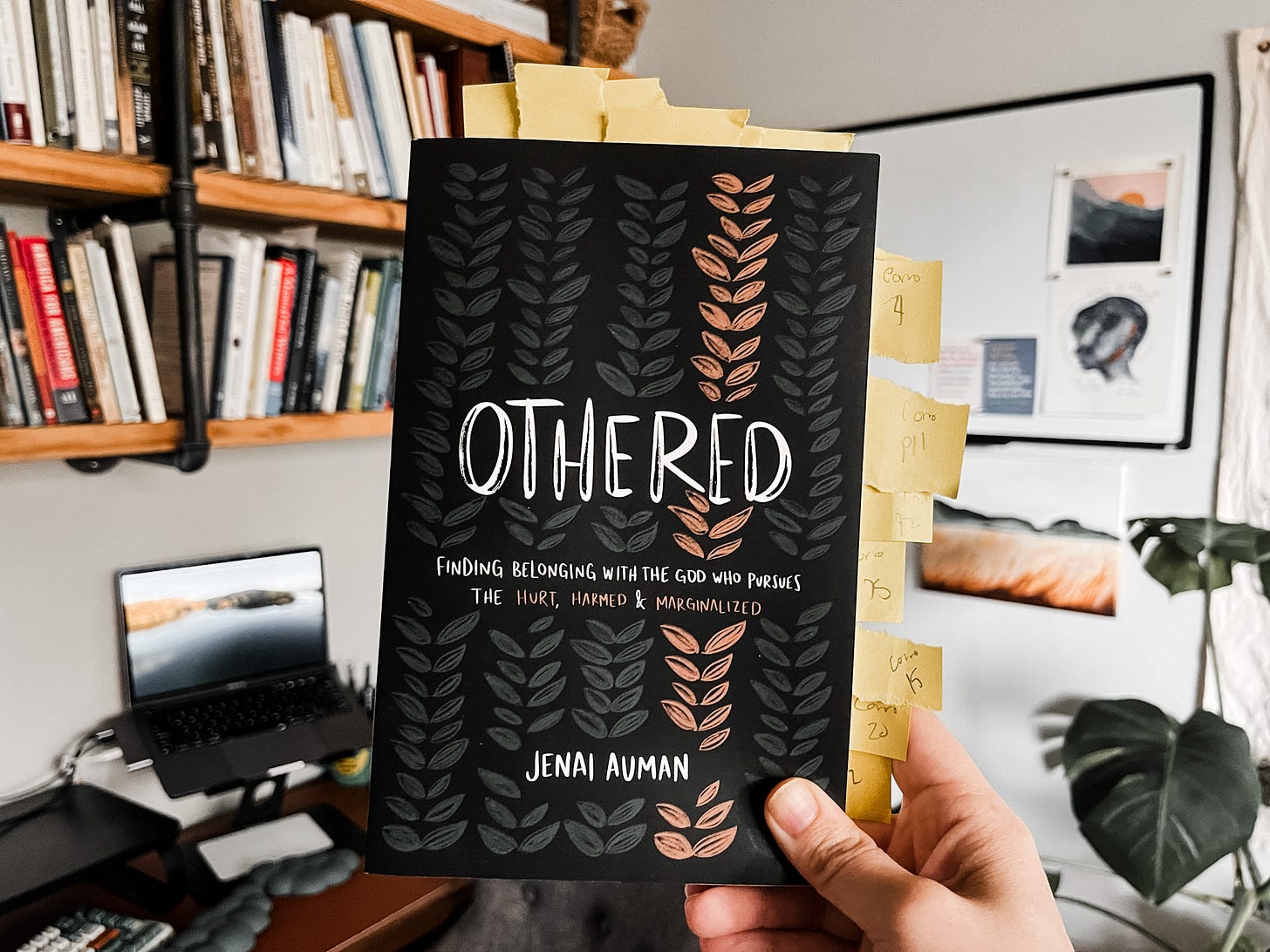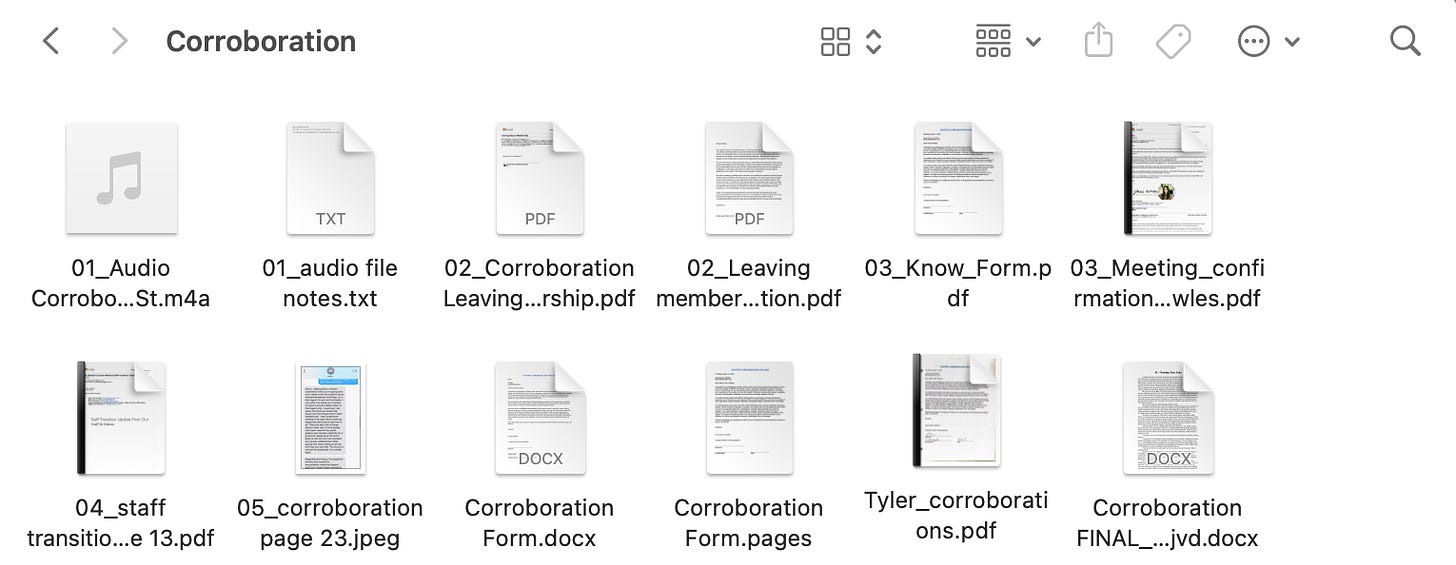Providing Documentation When Writing a Story on Abuse of Power
This post is published as a companion to my interview with Katherine Spearing with the Uncertain Podcast
My friend Katherine Spearing had me on the Uncertain Podcast to promote Othered. Before our interview, she messaged me about orienting our interview around a Substack post I wrote a few months back. She was interested on building on that particular post during our discussion together.
*You can read that former post here. ⬇️
The question from the above post was “How did you think through ways to avoid legal action when writing Othered?”
Because I had this question in mind, I wrote with extreme care. For one, Othered is not a memoir. Alas, there are some early reviews where readers expressed a wish that I included more of my story. There are also some reviews that believe I spilled too many beans. (And ones that say I didn’t tell the truth. 👀 More on that below.)
Second, I wrote from my perspective and what I witnessed and experienced, and, thus, I didn’t speculate on what other people in the story were thinking during many of the staff conflicts.
However, there are also checks in the publishing process. Let me share more.
On Katherine’s podcast, I speak a bit to what it was like to get the email about documentation and corroboration. An editor on the project contacted me. She wrote in part,
“When we have books dealing with church hurt and abusive behavior, our legal team reviews the relevant passages to make sure the author and publisher are protected from any unwanted accusations. Corroboration and/or some language revisions provide that protection.”
Thankfully, I kept screenshots, emails, and recorded video and audio files from my time on staff with the church and immediately after when my former pastors began their own internal “investigation”. The biggest pain was organizing all I had. I began recording conversations and meetings two years before I left my church. My documentation spans from 2018 to 2022. I also had a number of screen shots and emails. In short, I had a lot to filter through to corroborate the specific stories I shared in Othered. Had I shared more about my time on staff, I would have needed to provided more documentation. To organize what I needed, I created a “Corroboration” folder to provide the corroboration my publisher needed to bring Othered to print.
I also created a Google Sheet so they knew what document verified what specific claim within the final text of Othered. Each linked document opened to another file stored in my Corroboration folder.
(Above, you’ll see two page numbers. The first is the page number of the Word document I was addressing. The second page number is the page in the final text of Othered; I added this second page number for the sake of this post.)
There were also areas of Othered’s text where I had to change language. As Katherine and I discuss on the podcast, the need to change language does not mean that the noted instance didn’t occur or that it is made up. Changed language denotes that the author is writing from memory or recall. You typically see author notes on writing from memory or recall in the front of many memoirs. For instance, the below is a screen shot from the last chapter of the book where I added the phrase “From my point of view”.
In case you’re curious and have a copy of Othered handy, all instances of changed language in Othered are occur on the following pages:
p 18 - “What I recall hearing”
p 27 - “I remember”
p 51 - “I believe resided”
p 57 - “I recall”
p 62 - “I remember”
p 78 - “I remember” (You’ll see few of them on this page.)
p 116 - “What I believed to be a toxic environment”
p 136 - “I remember”
p 200 - “From my point of view”
You generally need to avoid writing direct quotes unless you have documentation of the direct quote. I did include a few direct quotes within Othered.
One direct quote is on page 77; this quote is from an email Tyler and I sent to our pastors. Another is on page 175; this quote is from a text message I received. The piece I directly quoted is underlined in yellow in the screenshot below.
I believe everyone who has experienced harm in the church deserves to have their story held and heard. However, if you choose to write you’re story for the public, having audio recordings, video recordings, and corroborating documentation will help protect you as you share.
If you’d like to hear more, check out my interview on the Uncertain Podcast with Katherine Spearing.














Wow. Seeing all the tedious, even daunting, requirements makes me that much more impressed that you shared publicly. Tough to think that somebody who already endured so much conflict might be targeted for sharing about it, even without using anyone’s name. I hope you feel peace with the care and wisdom that went into all the precautions.
This is AMAZING. 🔥